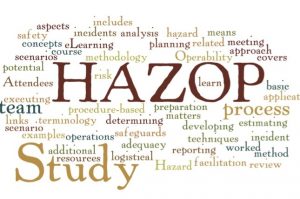Project Description
Why attend
The HAZOP study method was developed by ICI in the 1960s and its use and development was encouraged by the Chemical Industries Association (CIA) Guide published in 1977. Since then, it has become the technique of choice for many of those involved in the design of new processes and operations. In addition to its power in identifying safety, health, and environmental (SHE) hazards, a HAZOP study can also be used to search for potential operating problems. Not surprisingly, the method has been applied in many different ways within the process industries.
The objective here is to describe and illustrate the HAZOP study method, showing a variety of uses and some of the approaches that have been successful within the process industry. An important input has come from European Process Safety Centre (EPSC) members where 22 member companies responded in a survey. This identified many features generally regarded as essential to a good study. In addition, many common variations were described. These variations are in part due to the range of problems encountered within industry but also reflect individual choices of style. HAZOP study is a versatile technique and good results may be achieved by several different approaches provided the basic principles are followed. It is hoped that this Guide will help maintain a high standard for HAZOP study within the industry, both by raising quality and encouraging flexibility without putting any unnecessary constraints upon its use and development.

Course Objectives
By the end of the course, participants will be able to:
Understand how to plan, implement, record and review a HAZOP study.
Recognise and be able to use the key terminology and guidewords associated with a HAZOP study.
Be aware of the different roles within a HAZOP team and understand the key characteristics required by a HAZOP chair and the importance of balancing the HAZOP team dynamic.
Be aware of other process safety review tools and the limitations of a HAZOP study.
To put the combined learning into practice by leading and participating in a simulated HAZOP exercise.
Who should attend
This course is ideal for Process, Plant, Project, Chemical engineers. Also Instrument engineers and technicians, Safety/Loss Prevention/Risk managers, advisers and leaders. Others who would be involved in HAZOP studies. Alternatively, the course would suit anyone within the company who wishes to understand the principles of HAZOP.
Course Outline
Aims and objectives-Essential features of HAZOP study
Concept stage hazard review
- The description and design intention-Generating a deviation-Identifying causes-Evaluating consequences-
- Risk assessment-
- An illustration of the HAZOP study process
- Pre meeting with client-Planning the meetings-
- The study meetings-coordinating and reviewing responses
- How do we identify Hazards?-Widely Used Methodologies to Identify Hazards-
- Preliminary Hazards Analysis (PrHA)-Hazards And Operability Analysis (HAZOP)-
- Failure Mode and Effects Analysis (FMEA)-
- What If Analysis-Checklist Analysis-Use of Risk Matrix With Hazards Identification-
- Example: Liquefied Petroleum Gas (LPG) Rail Car Loading Terminal
- Assessing and Managing Risk-
- Risk Analysis-Calculation of Total Risk
- Risk Measurement-Risk Estimation & Acceptability Criteria-Comparative Risk
- Uncertainty in Risk Estimation-Risk Assessment Results and Land Use Planning-Risk Acceptability Criteria
- Comparative Common Risks-Risk Control (Risk Mitigation)-Relationship between Events (incidents) and Effects (impacts)-
- True Risk versus Potential Risk-Fault Tree Analysis-Failure Rate Estimation and Reliability Data-
- Introduction to Consequence Analysis-Consequence Mechanisms-Fire & Explosion Effects-
- Explosion Modelling Methods-Consequence Analysis Calculations
- Specific Release Scenarios-
- Use of Consequence Analysis
- What Is FMEA?-Reasons for Using FMEA
- When and Where to Use It?-Regulatory Compliance-Different Types of FMEAs
- Methodology-Risk Analysis (prioritizing risks)-FMEA Worksheet Format
- FMECA-Benefits of FMEA and FMECA
- Pitfalls with FMEA and FMECA-FMEA Terminology-Sample of FMEA Report Using Software
The workshop
This interactive training course includes the following training methodologies as presented on the next column based on percentage of the total tuition hours:
Lectures
Workshops & Work presentation
Case Studies & Practical Exercises
Videos, Sofware & General Discussion
The course instructor may modify the above training methodology before or during the course for technical reasons with no prior notice to participants.
Falcon Consulting Professionals is established in Greece for the last 15 years in the areas of technical consulting and professional training for the local industries. Falcon is expanding in GCC, aiming to provide the best consulting and training solutions to the industries of the region. Falcon’s instructors are accredited trainers and highly experienced in their fields, as well as adult training. We aspire to build our business relationships on mutual trust. The achievement of results with an emphasis on innovation and sustainability, quality, cost analysis and time scheduling are non-negotiable from the conceptual phase of the training.

